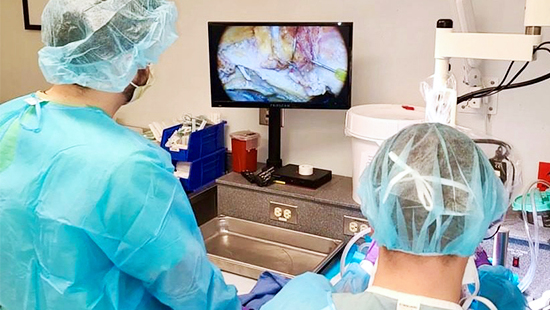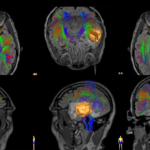Research & Education
The multi-disciplinary, collaborative team of physicians and research scientists at the Northwestern Medicine Malnati Brain Tumor Institute of the Lurie Cancer Center is dedicated to advancing the standard-of-care and improving the lives of patients with a wide range of central nervous system cancers. Our excellence in patient care is both supported and advanced through extensive basic science and translational research, with each laboratory focused on a unique aspect of brain and spine tumors.
Grants & Awards
Malnati Brain Tumor Institute investigators are supported by more than 30 awards from the National Institutes of Health.
-
Brain Tumor SPORE
The Lurie Cancer Center Brain Tumor SPORE, led by Maciej Lesniak, MD, professor and chair of the Department of Neurosurgery, with projects led by members of the Departments of Neurosurgery and Neurology, is one of only six brain cancer Specialized Programs of Research Excellence (SPORE) grants from the National Cancer Institute (NCI). The SPORE supports the efforts of our clinical investigators and basic scientists to advance novel treatment approaches to improve outcomes for patients with brain cancer. -
U19
The NCI-funded Glioblastoma Therapeutics Network (GTN) supports multi-institution collaboration to rapidly develop new treatments. Our research team is focused on using ultrasound technology to deliver novel therapies across the blood-brain barrier.

Research Areas
Significant Breakthroughs
Learn about a few of the recent breakthroughs driven by Malnati Brain Tumor Institute investigators below.
Trainee Resources

Skull Base Lab
The Skull Base Lab gives residents, fellows and practicing surgeons the opportunity to work with highly trained faculty using state-of-the-art technologies and hands-on dissection to improve the skills they need in the operating room.

Nervous System Tumor Bank
The tumor bank provides scientists with high-quality, patient-derived biospecimens to support preclinical and translational neuro-oncology research. Biospecimens include tissues, cells, blood and cerebrospinal fluid.

Cancer Cores & Facilities
The Lurie Cancer Center funds shared services, equipment and expertise that are fundamental to understanding the basic biology and clinical manifestations of cancer.

Stephen M. Coffman Imaging Site
The laboratory technology at this site helps Feinberg scientists study cancer cells faster and in more detail, thanks to the support of the Stephen M. Coffman Charitable Trust.
Never miss news and discoveries from our team on brain and spine tumor health.
